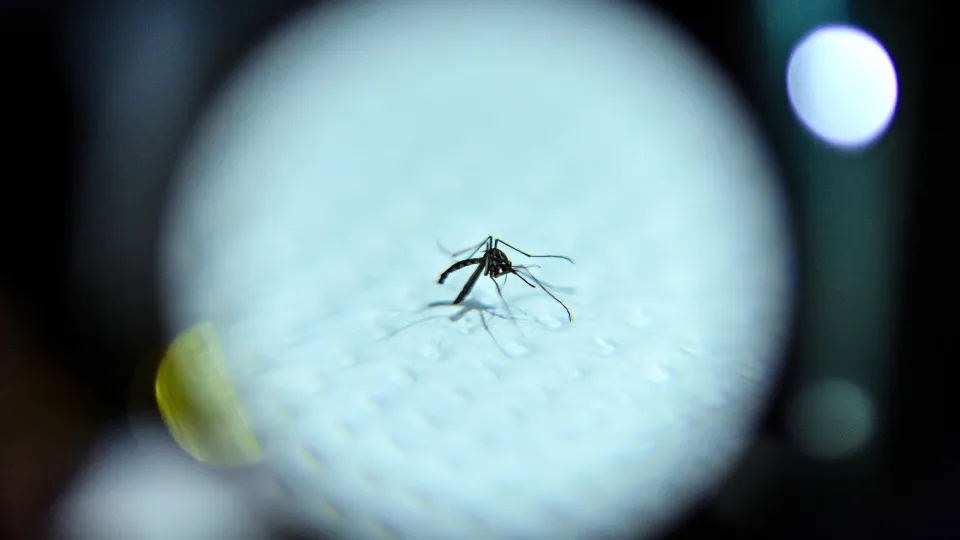
In a statement sent to the Lusa news agency, the Local Health Unit (ULS) of Coimbra announced the detection of the Aedes Albopictus mosquito, commonly known as the “tiger mosquito,” in Condeixa-a-Nova, Coimbra district.
The institution urged the public to adopt measures to reduce breeding sites for the species, such as eliminating or overturning water-accumulating containers like barrels, buckets, and plant saucers.
Other recommended actions include cleaning gutters and drains to prevent water accumulation; covering water storage areas like cisterns, wells, and tanks; maintaining clean, treated, or properly covered swimming pools; and changing the water in animal bowls and troughs at least once a week.
The importance of properly disposing of trash was highlighted, as plastics, cans, and packages can collect water, and used tires should be delivered to collection points or kept dry and sheltered.
For individual protection against mosquito bites, it is advised to use repellents containing DEET, picaridin, or IR3535; wear long clothing, especially at dawn and dusk; and use mosquito nets on windows and doors.
The ULS of Coimbra further emphasized “the importance of downloading the Mosquito Alert mobile application” for users to record their observations.
In the event of a mosquito-borne disease diagnosis, such as dengue, zika, chikungunya, or yellow fever, it is mandatory to promptly notify the National Epidemiological Surveillance System (SINAVE).
In July 2024, the Directorate-General of Health (DGS) advised municipalities, tourist establishments, and agricultural and industrial sector entities, among others, to adopt mosquito prevention and control measures for species that transmit zika and dengue.
Guidelines published on their website highlighted that, given the detection of the invasive Aedes albopictus species in various parishes and municipalities in mainland Portugal, it is essential to reinforce prevention and control mechanisms aimed at reducing the abundance or elimination of this mosquito species.
According to the DGS, the most recent detections of this invasive mosquito in Portugal were recorded in the municipalities of Cascais and Pombal, corresponding to risk level 1 (yellow) on a scale from 0 to 3. This scale is defined according to different scenarios regarding the presence of Aedes mosquitoes and detection of disease cases, as outlined in the National Plan for Prevention and Control of Vector-Transmitted Diseases.
The presence of invasive Aedes mosquitoes in Portugal began with the detection of Aedes aegypti in Madeira in 2005. The Aedes albopictus species was introduced to the mainland in 2017 in the North (Penafiel), in 2018 in the Algarve (Loulé), and in 2022 in Alentejo (Mértola).
At the end of September this year, the tiger mosquito was also detected in Covilhã, Castelo Branco district.




